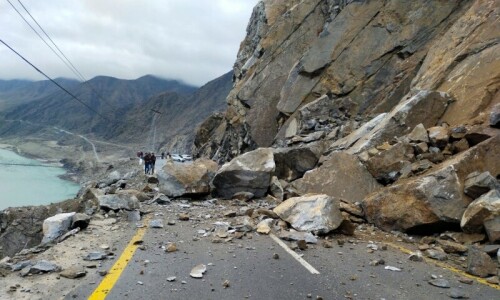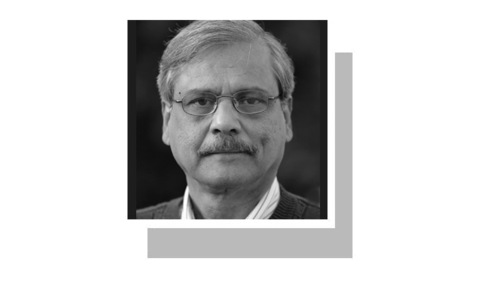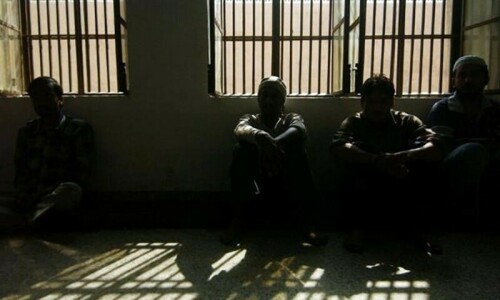There was a strange dichotomy amongst the women I met whilst in Pakistan. For every woman I’d meet that was breaking all social norms, spearheading change, shattering all glass ceilings, walls and doors, I would meet another resolutely uninformed about the conditions of the ‘have nots’ and more interested in the more banal pursuits of life.
The latter were content with the status quo, the former persistent about altering it.
Pakistan is often touted to be one of the worst places in the world to be a woman and with at least 1601 women killed in the country in 2013 for honour or other reasons, it’s a difficult supposition to refute.
Also read: Five ways Pakistan degraded women
Yet, having lived and worked in Islamabad for over a year now, I find it hard to be pessimistic about the status of women in society, despite the grim statistics.
It’s a man’s world, and in Pakistan even more so, but women are making sure that they’re not spectators in their own country.
As Sandberg would put it, they’re ‘leaning in’ in every sense of the word, whether this constitutes running their family businesses, working in top corporations or traveling to remote parts of the country as NGO workers.
Also read: Seven defining moments for the Pakistani woman
Women currently occupy 60 out of the 340 seats in Pakistan’s National Assembly. Eighty-six per cent of girls were enrolled in primary school in 2012, compared to 62 per cent a decade earlier.
In 1993, in Pakistani universities, women made up about 22 per cent of the total number of students, in 2012 that figure rose to 47 per cent.
The largest bank in the country, HBL, hires 50 per cent female MBA graduates. Engro Chemicals, a large conglomerate, has 100 women in management positions. And as a result of these women in top, influential roles, the company last year introduced flexible working hours, a daycare centre, and a support group for female employees.
Yet, according to figures from the World Bank, the average labour force participation rate of women in Pakistan between 2009-13 was only 24 per cent. This is one of the lowest rates in the world.
The bulk of this female workforce resides rurally – almost three quarters of these women work in the agricultural sector. In order for more women to rise up to senior influential positions, the barriers have to be removed for them to enter the urban workforce.
Where do we begin to change this?
One of the women I was fortunate to meet through my job was from a very conservative family. She would wake up at 5am every day to make breakfast for her large family and then travel from her village to get to work on time.
She told me about her struggle to work – her in-laws were against it, her husband was against it and the entire community was against it.
She stood her ground and kept on working even though it meant moving away from her husband’s extended family. Gradually, they came to accept her decision – an increase in disposable income can be a great persuader.
I was struck by how revolutionary her stance was in such a patriarchal society. The ripples caused by such a decision would inculcate change in all future generations of her family.
Her daughters would be raised with different possibilities, different choices than those she was allowed, all because she raised her voice and didn’t back down.
Also read: Pakistan's quiet gender revolution
I am hopeful that this generation of Pakistani women will bring the change that society so desperately needs.
The women I have met are much more likely to live a life unwritten by social norms, untethered by an outdated value system steeped in misogyny, unencumbered by a lethargic sense of entitlement.
Pakistan is changing slowly – it just needs more women to run with the wolves.













































